| Photojournal
- 7 November
2005
Silent
yodellers
|
The 7th was a Monday
and I had spent much of the weekend looking for the King Eider.
That eider was still on my mind, and since my last meeting ended
around 2pm, I decided to take the rest of the afternoon and go
up to the north shore looking for him.
I first drove to Caulfield
Park, where I had seen the big flock of scoters on Saturday. On
the way, in West Vancouver, I passed one such flock, and mentally
noted its location in case Caulfield didn't pan out.
When I got to Caulfield,
it was much sunnier than the last time I had been there. The first
thing I noticed was a male Anna's Hummingbird zooming around in
the trees. Here I caught him perched..
|
|
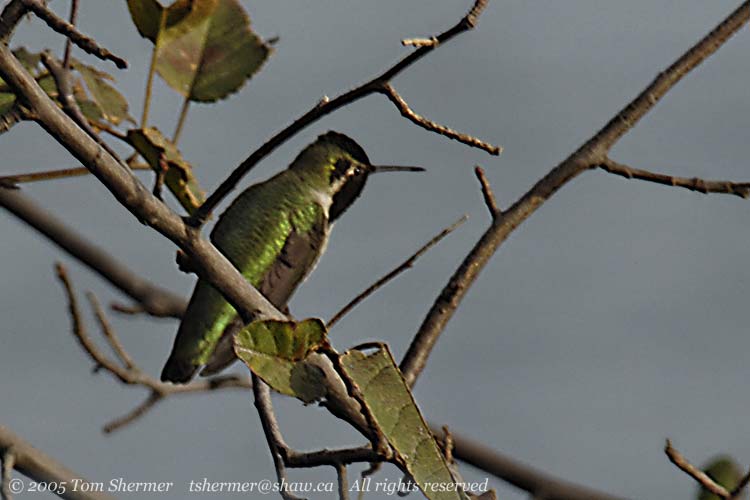 |
| Hummingbirds
are pretty hard to follow when they get to zipping around, and this
fellow was no exception. I lost and reacquired him a few times,
but once I when I thought I had found the hummingbird again, it
was actually Ricky, a Ruby-crowned Kinglet. I soon realized I had
a different bird—even though both are small, flitty birds,
their flittiness is quite different. And so is their color. |
|
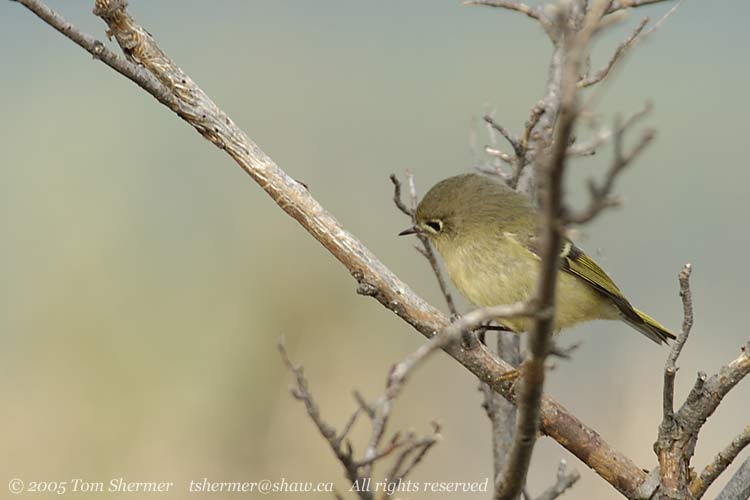 |
|
After chasing Anna
and Ricky for a while, I tired of their flitting ways. I then
looked over the cliff down to the water, and found not a single
scoter. Obviously, it wouldn't do much good to look for the eider
there, so I decided to head back to where I had seen the scoters
on my way in.
The place with the
scoters turned out to be called Sandy Cove, at least according
to my map. There didn't seem to be anything around on the road
that announced that fact. Directly across from one part of the
scoter flock, there was a gravel siding to the road. I went past,
turned around, and parked there.
I grabbed camera and
tripod and crossed the road, which was getting busy with the afternoon
rush. The flock was a bit far out, but seemed to be closer as
it rounded a point to my left. I decided to head that way, but
first stopped to get a few shots of a male Harlequin Duck that
was close in.
|
|
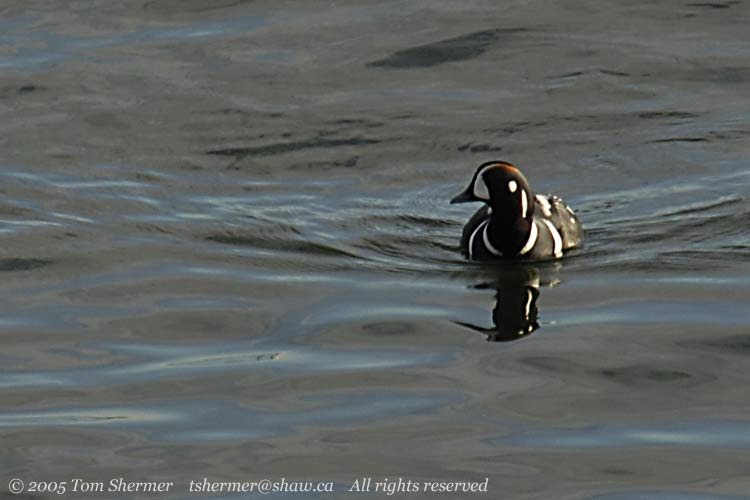 |
|
I then proceeded east
along the sidewalk-less road. It's a cliffside road, so there
were one or two portions where I had to be careful and wait for
traffic to clear before walking on the road itself. But soon I
found myself at the side of a very steep embankment looking over
a big flock of scoters. I went maybe one step away from the road,
and sat down on the grass.
I did this for a few
reasons: one, my silhouette on the top of the cliff had scared
the birds away, and I needed to not look so ominous to them; two,
people were zooming down this fairly curvy two-lane road and at
that speed had a hard time judging that I was off the road, resulting
in horn honks and panicked braking; and three, it was easier on
my back to sit. There was a small stone wall between me and the
road, so I wasn't much visible once I sat, and I knew that I was
quite safe in that most people drive so as not to run into stone
walls.
It was a little tricky
setting up my tripod on the embankment, but it's a fairly adjustable
thing and I eventually got it set to a comfortable and stable
position. Soon the birds had forgotten about me and were swimming
back in near shore, too.
But before they did
that, I did take a few photos of them. I had only my telephoto
so I couldn't get a wide shot of the whole flock. Besides which,
there were still those birds off to the right that were on the
other side of the point that I wouldn't have gotten in the photo,
anyhow. So again, like in the photos from Saturday, this isn't
near all the flock.
|
|
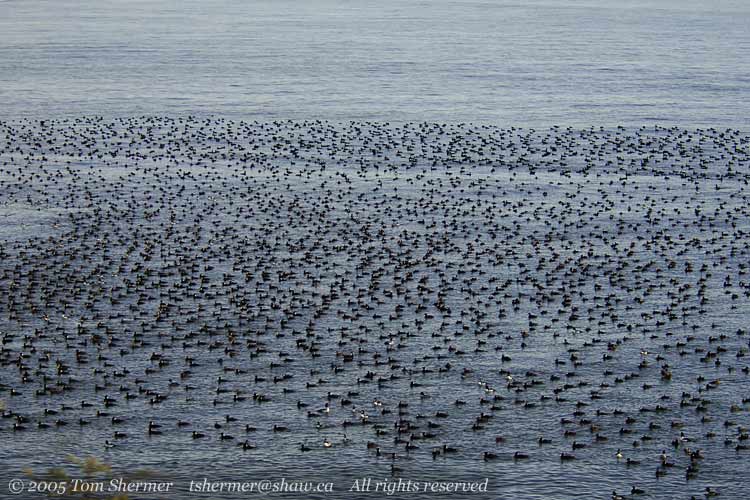 |
| You can
probably pick out some of the white-bodied Barrow's Goldeneyes that
were, like on Saturday, hanging out with the scoters. The flock
seemed to be doing a lot of what Surf Scoters do, including the
swim-forward-to-a-line-then-dive maneuver. |
|
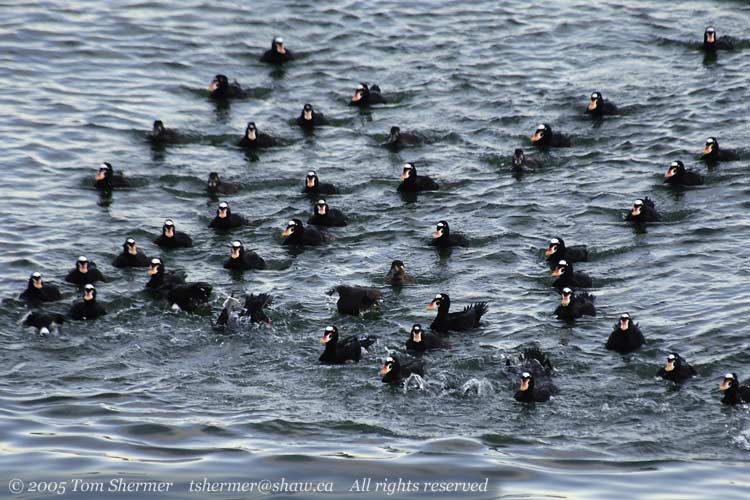 |
| I scanned
the flock for quite some time, looking for the King Eider. At one
point, I noticed some white-and-grey ducks in the bunch. They were
fairly distinctive, so I knew what they were immediately: Long-tailed
Ducks. Long-tailed Ducks are a fairly common Vancouver species,
but they're a sea duck, and I haven't spent a lot of time looking
at sea birds, so they were a lifer for me. Here's one of the best
shots I got of them. The female is to the left and the male to the
right. |
|
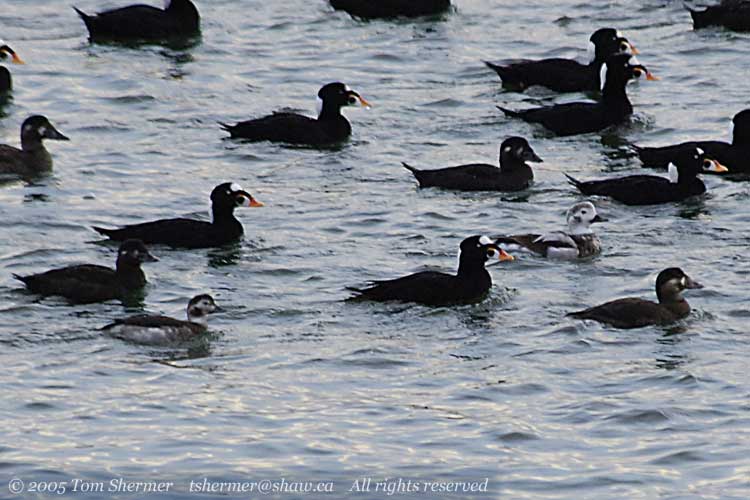 |
|
As near as I can tell,
that male is a first-winter bird, meaning he's less than a year
old. Older males are supposed to have a mainly grey face.
I didn't get to hear
them, but Long-taileds are known for their loud call that sounds
like yodelling. Now, that puts 'em high on my list. I mean, if
you're gonna make a sound, what could be more cool than yodelling?
I was a bit disappointed that I didn't get to hear them, but apparently
spring is more yodelling season than the fall.
In constrast to the
Long-tailed Ducks, Surf Scoters don't yodel. So this fellow below,
who was giving the bachelor in front an earful, sounded more like
Donald Duck than Gene Autry.
|
|
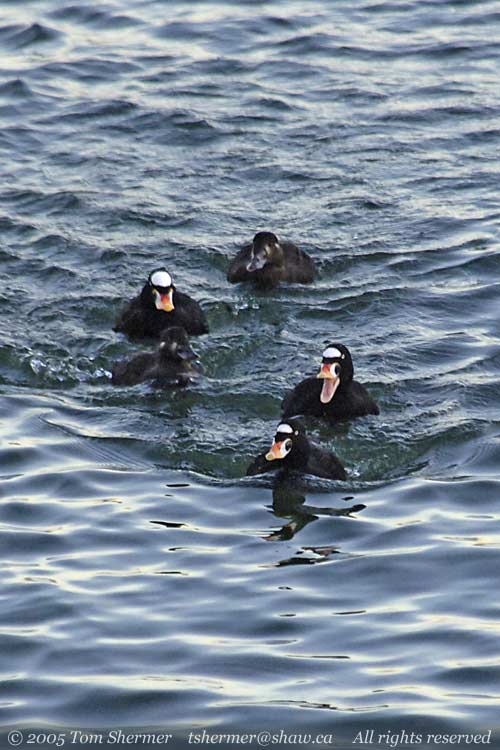 |
|
That's too bad, 'cuz
he looked a little more like Gene, don't you think?
After a while, the
sun started getting low, leaving yellowish reflections on the
water, making it look very silky. I took advantage of this in
several shots, such as this one of a lone male Surf Scoter.
|
|
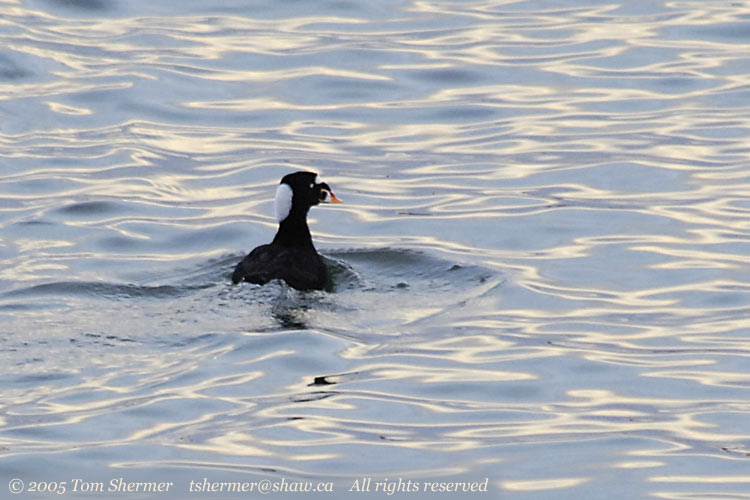 |
| A little
later, this female Black Scoter came in close to shore. That cozy,
tranquil, shallow-looking, pastel water she's on is probably thirty
meters deep and would give any one of us hypothermia in about a
minute. |
|
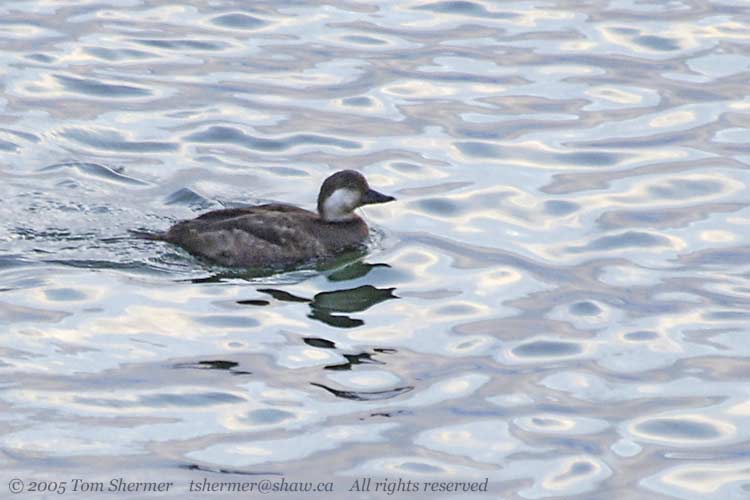 |
| The last
of the hangers-on to the flock that I caught was this Double-crested
Cormorant, who surfaced a little off to my right. |
|
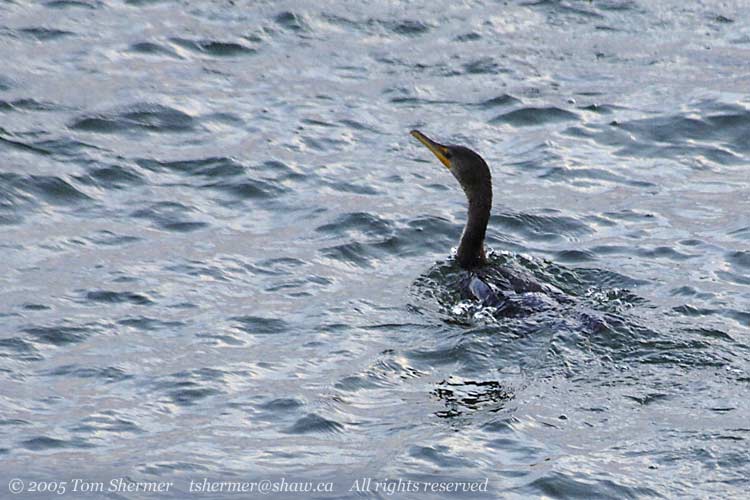 |
| I kept looking
for the eider until the light got dim and the sun was almost gone.
I walked back towards my car, enjoying the sunset. Once I was across
from where I had parked, I set up the tripod again and took a few
sunset shots. |
|
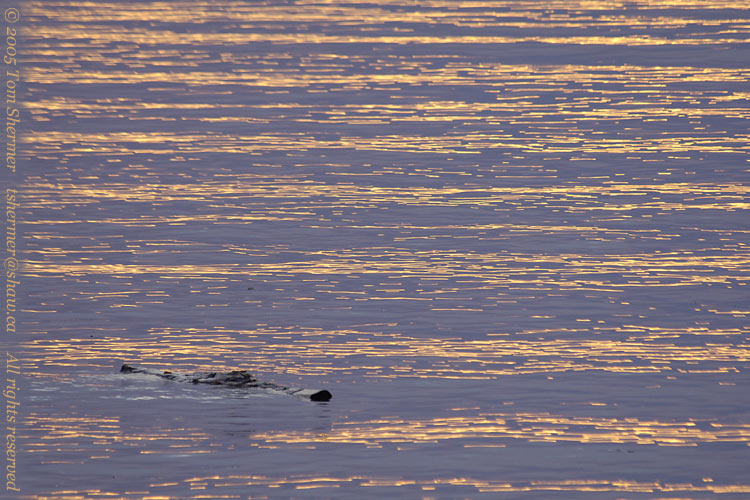 |
| |
|
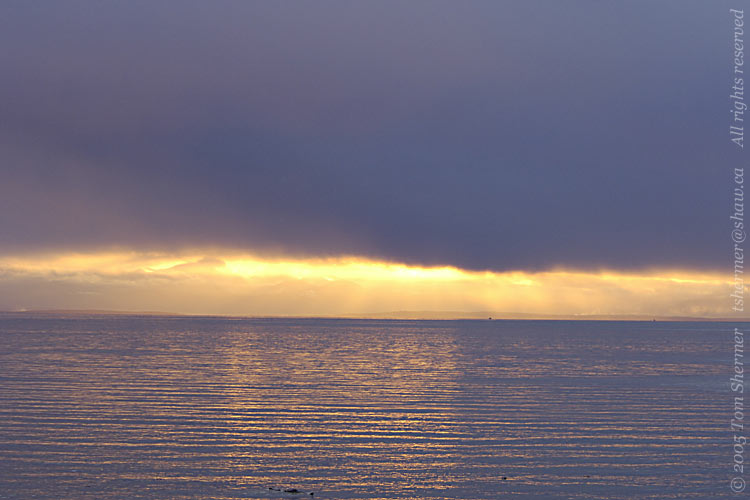 |
|
My third straight day
of eider hunting had come up empty. I still enjoyed it, though,
as I had gotten some neat shots and a lifer pair of Long-tailed
Ducks.
However, three misses
was enough for me for the moment, and the next time out, I wasn't
going looking for that particular bird again.
All scotered out,
Tom
|
|
|